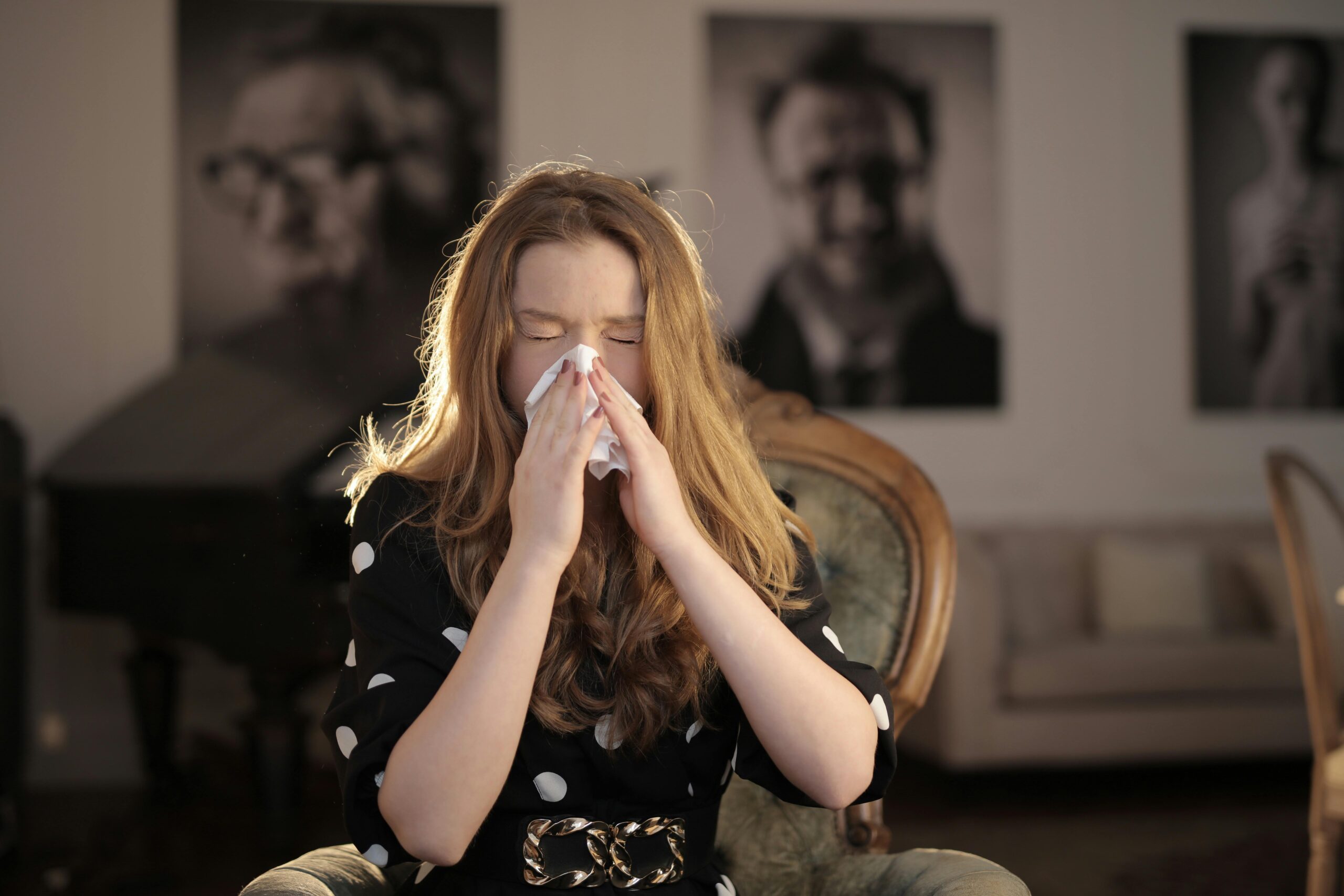Pollen allergies can make you sneeze, itch, and feel miserable. As pollen counts go up in spring and fall, non-drowsy allergy medications can help you feel better without making you sleepy. This guide will show you the best non-drowsy allergy medication for pollen allergies, how they work and which one might be right for you.
Understanding Non-Drowsy Allergy Medications
What Are Non-Drowsy Allergy Medications?
Non-drowsy allergy medications help relieve symptoms like sneezing and itchy eyes without making you feel sleepy. They work by blocking the chemicals in your body that cause allergy symptoms.
How Do They Work?
When you have allergies, your body releases a chemical called histamine. This chemical makes you feel itchy and sneezy. Non-drowsy antihistamines block the effects of histamine, helping to ease your symptoms without affecting your alertness.
Why Choose Non-Drowsy Options?
- Stay Alert: These medications help you stay focused at work or school.
- Avoid Sleepiness: Perfect for when you need to drive or operate machinery.
- All-Day Relief: Many work for 24 hours, so you only need to take them once a day.

Top Non-Drowsy Allergy Medications
1. Zyrtec (Cetirizine)
Zyrtec, which contains cetirizine, is a popular choice for allergy relief. It helps quickly with symptoms like sneezing, itching, and a runny nose. It starts working within an hour and lasts up to 24 hours, so you only need to take it once a day. Most people don’t feel sleepy, but a few might.
- Pros:
- Fast Relief: Starts working within an hour.
- Long-Lasting: Provides up to 24 hours of relief.
- Flexible: Can be taken with or without food.
- Cons:
- Mild Sleepiness: Some people may feel slightly sleepy.
- Price: Usually more expensive than some other options.
2. Claritin (Loratadine)
Claritin has loratadine, which helps with mild to moderate allergy symptoms like sneezing and itchy eyes. It usually doesn’t make you feel sleepy and is a budget-friendly option. It might not work as well for very strong allergy symptoms.
- Pros:
- Good for Mild Symptoms: Helps with sneezing and itchy eyes.
- Low Sleepiness: Rarely causes drowsiness.
- Affordable: Generally cheaper than some other non-drowsy medications.
- Cons:
- Less Effective for Severe Symptoms: Might not work as well for strong allergies.
- Possible Interactions: Can interact with other medications.
3. Allegra (Fexofenadine)
Allegra contains fexofenadine and is great for severe allergy symptoms like intense itching and stuffy nose. It works for up to 24 hours and rarely makes you feel sleepy. Allegra comes in tablets and liquids but is often more expensive.
- Pros:
- Great for Severe Symptoms: Helps with intense itching and stuffy nose.
- Very Low Sleepiness: Almost never makes you sleepy.
- Different Forms: Available as tablets, liquids, and dissolvable forms.
- Cons:
- Higher Cost: Usually more expensive.
- Possible Side Effects: Some people may get headaches or dry mouth.
4. Xyzal (Levocetirizine)
Xyzal has levocetirizine and is effective for both day and night-time allergy symptoms. It provides relief for up to 24 hours and usually causes little to no sleepiness. It’s especially helpful if allergies bother you at night, though it can be more costly.
- Pros:
- Effective All Day: Works for both daytime and nighttime symptoms.
- Minimal Sleepiness: Causes little to no drowsiness.
- Long-Lasting: Relief lasts up to 24 hours.
- Cons:
- More Expensive: Can cost more than other options.
- Mild Sleepiness: Some people may still feel a bit sleepy.
How to Choose the Right Medication
Factors to Consider:
Severity of Symptoms:
- Mild Symptoms: For minor symptoms such as occasional sneezing or a runny nose, medications like Claritin might be sufficient.
- Moderate Symptoms: If symptoms are more frequent or bothersome, consider options like Zyrtec or Allegra.
- Severe Symptoms: For intense symptoms or multiple allergy triggers, Allegra or Xyzal may provide the best relief.
Frequency of Use:
- Daily Use: Medications with longer-lasting effects, such as Zyrtec or Allegra, are ideal for daily use.
- Occasional Use: If allergies are intermittent, Claritin’s quick relief can be convenient.
- Nighttime Use: For managing nighttime symptoms, Xyzal’s formulation may be beneficial.
Cost:
Budget-Friendly Options: Claritin and generic versions are generally more affordable and can be a cost-effective choice.
Premium Options: Allegra and Xyzal may be pricier but offer stronger relief or additional benefits.
Additional Tips:
Consult Healthcare Providers: Always discuss with a healthcare provider to ensure the chosen medication does not interact with other medications or conditions.
Consider Insurance Coverage: Check if the medication is covered by insurance to manage costs effectively.
Additional Tips for Managing Pollen Allergies
Utilize Apps and Websites: Tools like Pollen.com or local weather apps provide real-time pollen counts and forecasts. This information can help you plan outdoor activities and avoid peak pollen times.
Reduce Indoor Allergen Exposure: Keeping windows shut during high pollen seasons prevents allergens from entering your home. Use air conditioning to maintain airflow without letting pollen in.
Improve Indoor Air Quality: High-efficiency particulate air (HEPA) filters capture airborne allergens, including pollen. Install these filters in your home’s HVAC systems and use portable air purifiers.
Reduce Allergen Accumulation: Pollen can settle on bedding and pillows, leading to continued exposure. Wash these items in hot water weekly to remove allergens.
Remove Pollen from Skin and Hair: Pollen can cling to your skin and hair after spending time outside. Showering and changing clothes upon returning indoors can reduce allergen transfer.
Additional Tips:
Home Remedies: Explore natural remedies such as saline nasal sprays or local honey, which some believe may help alleviate symptoms.
Consult Allergists: For persistent or severe symptoms, an allergist can provide personalized treatment plans and potentially recommend allergy testing or immunotherapy.
Selecting the right non-drowsy allergy medication involves evaluating the severity of your symptoms, the frequency of use, and your budget. Whether you choose Zyrtec, Claritin, Allegra, or Xyzal, each medication offers unique benefits to cater to different needs. By understanding the features and limitations of each option, you can make an informed decision to manage your pollen allergies effectively.
In addition to medication, adopting practical strategies for minimizing allergen exposure will enhance your overall allergy management. Stay informed, and consult healthcare professionals to tailor an approach that works best for you.
Thank you for reading!



